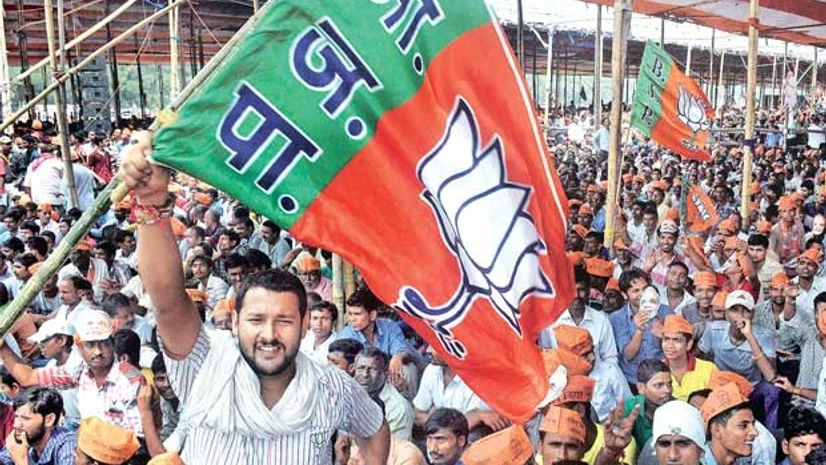The Rajasthan assembly’s Bill to provide 14 per cent reservation for the poor among upper castes is not an isolated attempt by the Bharatiya Janata Party (BJP) to prod a debate on the current policy of caste based quotas in government jobs and educational institutions. This is also an attempt to float a trial balloon to test political, judicial and legislative obstacles that such a move is likely to face.
Demands for reviewing the current caste-based reservation policy, or at least introducing quotas for the poor among the unreserved castes, have become vociferous in the last couple of months.
In Gujarat, Hardik Patel is leading an anti-reservation stir. Rashtriya Swayamsevak Sangh (RSS) chief Mohan Bhagwat has called for a review of the current reservation policy. Even Congress leaders Jitin Prasada and Manish Tewari have questioned caste-based reservations and have called for economic deprivation as the basis for quotas in jobs and educational institutions.
Also Read
A day after the Rajasthan assembly passed the Bill to provide for 14 per cent quota for economically weaker sections of the upper castes, senior BJP leader Prakash Javadekar said his party favoured such quotas but without tinkering with the existing policy of 49.5 per cent quota for socially and economically backward classes (15 per cent for Scheduled Castes, 7.5 per cent for Scheduled Tribes and 27 per cent for Other Backward Classes).
"While keeping the 50 per cent quota intact, the development of poor among those who are not getting the benefits of reservation, besides the Dalits and backwards, has been a key aspect of our concerns and programmes," Javadekar said.
ALSO READ: Reserving jobs
Any reservations for the poor among upper castes will be over and above the existing 49.5 percent quotas. This will fall foul of the Supreme Court fixed 50 per cent cap on reservations. This pitfall can be avoided if Parliament includes the Rajasthan formula, as it has done with some other states with quotas above 50 per cent, in the ninth schedule. But a bigger obstacle is that the Constitution does not provide for quotas purely on the economic basis.
The Constitution will need to be amended for the Rajasthan government’s move to pass judicial muster. When asked if the BJP could amend the Constitution so reservation could be extended to upper castes on the ground of economic backwardness, Javadekar hedged. "This is not the issue right now," he said.
The BJP, including its state government in Rajasthan, understands that the 14 per cent quota for the poor among upper caste is unlikely to stand either the Parliamentary or judicial scrutiny. But what the exercise would accomplish is to start a debate on the need for quotas for the poor among upper castes and send a strong message to its support base among these castes that the party was thinking about their concerns.

)
